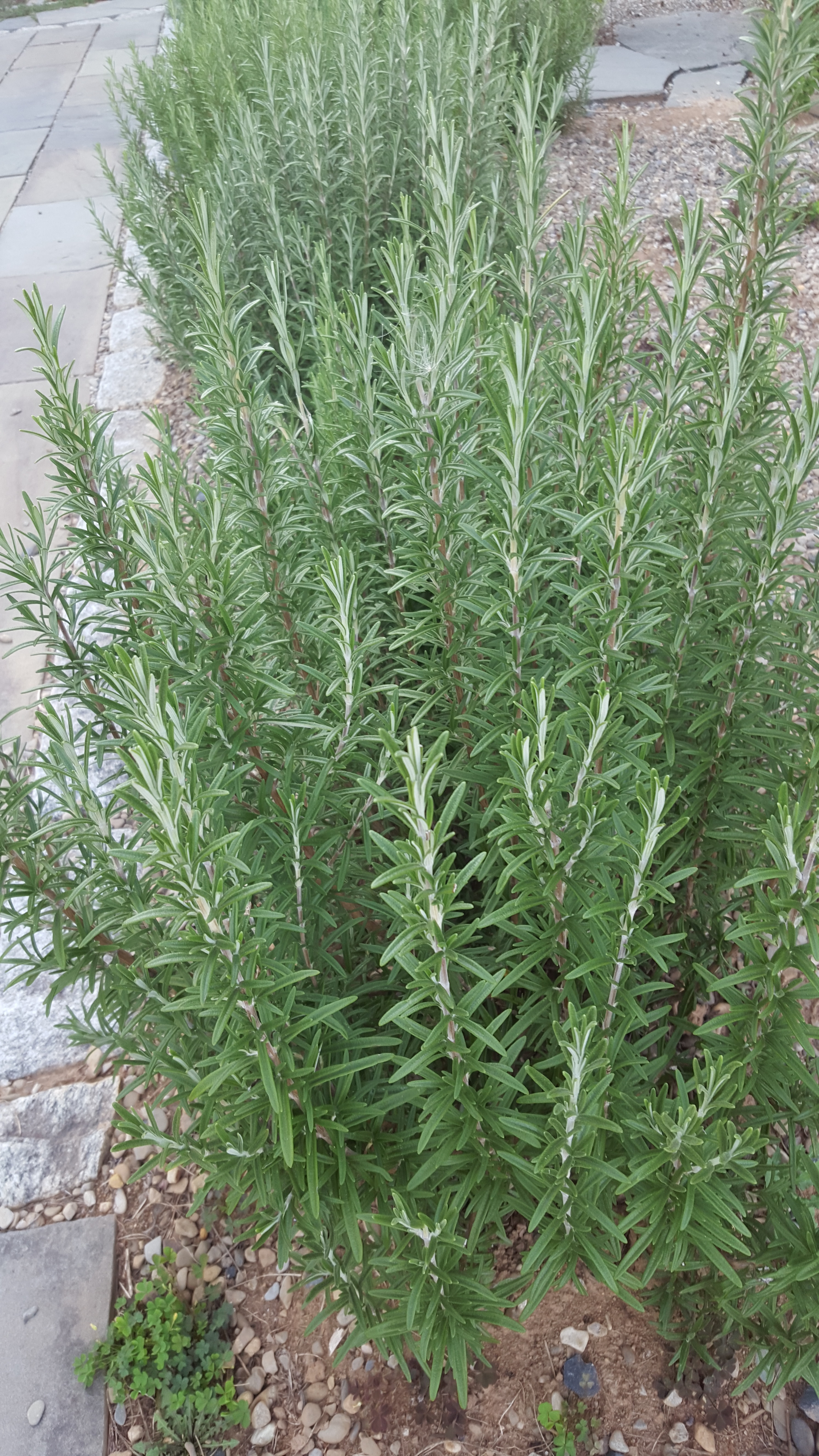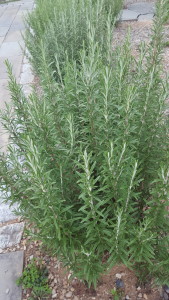The mission of Rutgers Gardens is education. The staff, the student interns and the volunteers all love sharing the Gardens with visitors, answering their questions and encouraging the curiosity of the children. Unfortunately, a tiny fraction of the visitors to the Gardens spoil the experience for everyone else by stealing plants, picking flowers and illegally harvesting vegetables.
Over the years that I have been tending to the herb garden, I have added a lot of plants, all of which were dug up and stolen by visitors. I held my breath when I replaced the rosemary hedge with new plants, expecting them also to be stolen. Thankfully, they are still where they were planted.
This past Saturday night, someone(s) broke into the vegetable garden and stole a significant amount of the produce. They also visited the herb garden, helping themselves to a large part of the biggest, most beautiful rosemary bush.
I am heartbroken. I planted that bush. I hand watered it for weeks. I gently pruned and shaped it. And now it has been hacked nearly in half. It will be years before it recovers its lovely shape.
I realize that most visitors to the Gardens don’t intentionally set out to do any harm. Based on my decade of experience volunteering at Rutgers Gardens and visiting other botanical gardens, here is a list of basic rules to be followed when visiting a botanical garden:
- Please don’t steal the plants. Plants are expensive. Containers are expensive. Rutgers Gardens operates on a shoestring budget. We receive very little funding from the university. We raise most of our funds ourselves. That’s why we are always selling things. We need the money to buy plants. So please don’t steal them. We can’t afford to replace them.
- Please don’t pick the flowers. There are literally thousands of flowers throughout the Gardens. Most people who pick flowers figure that just one flower won’t be missed. However, what they don’t realize is that we get 10,000+ visitors each year. And if each visitor picked a flower, there would be none left.
- Please don’t pick any vegetables. It may look like there are a lot of tomatoes and beans and squash and lettuce, but our vegetable garden is operated like a CSA. The volunteers who work in it share in the harvest. They depend on those vegetables to feed their families. And produce that is not consumed by those volunteers is donated to Elijah’s Promise, a local soup kitchen, to feed the hungry.
- Please don’t pick the herbs. See Rule #2. If everyone picked the herbs, there would be none left. The herb garden is a demonstration garden to educate the public about herb gardening and xeriscape gardening. I do operate an informal CSA: when I prune the rosemary, sage and lavender hedges, I share the prunings with the volunteers who work so hard in the greenhouse and at the herb table at Spring Flower Fair. They have put in hours of work and deserve to share in the bounty of the herb garden.
- Please don’t walk into the planting beds. What a lot of people don’t realize is that soil is not solid. It has air spaces in it that allows water, roots, worms and other critters to move through it. Every time you step on it, you crush those air spaces. And if every one of those 10,000+ visitors stepped on the soil in the planting beds, the soil would indeed become solid. No water could penetrate it, no roots could grow in it. The plants would all die.
- If you have a question, please ask the nearest volunteer, staff member or student intern. We don’t bite, honest! We love talking to visitors and educating them about gardening, landscape design, composting, you name it. So don’t guess or be left wondering. Ask away. If we don’t know, we know someone who does or where you can get the answer to your question.
We want you to enjoy your visit. Just remember, you are one of 10,000+ visitors. Take pictures, not plants. Leave the Gardens the way you found them so that others can enjoy them too.


